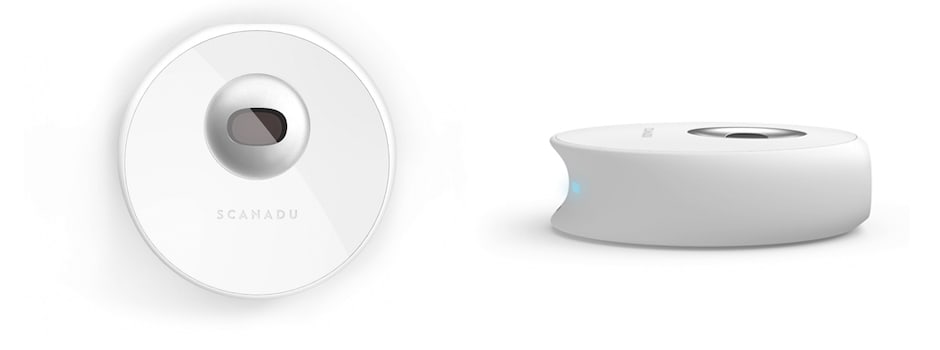Scanadu’s Scanners Put a Digital Doctor in Your Hand
One of the most promising startups at CES, Scanadu may lead the revolution in personal health.
 Credit:
Credit:
Products are chosen independently by our editors. Purchases made through our links may earn us a commission.
There are health trackers, and then there are health trackers.
With so many fitness bands and activity monitors on display at this year’s International CES, it becomes a near fruitless endeavor to distinguish between them; they all offer more or less the same functionality, and most fail to solve any real problems in personal health.
And then there’s Scanadu, a three-year-old Silicon Valley startup that will soon release one of the most exciting products in personal health, and maybe even consumer tech as a whole: an actual, real-life tricorder.
Scout
For those of you who aren't Trekkies, a medical Tricorder is a heretofore fictional device from the Star Trek universe that uses sensors to monitor and diagnose vital signs and medical conditions. Scanadu’s Indiegogo-funded Scout is a sleek, hockey puck-sized scanner that's capable of sensing and monitoring six vital signs: heart rate, body temperature, blood oxygenation, electrocardiogram (ECG) waves, heart rate variability, and pulse transit time.
Together, these signs can deliver a thorough assessment of vital health and ultimately, Scanadu hopes, reduce medical readmissions and doctor visits. In the long run, technology like this could help reduce overall medical costs.
"Consumers don't have the tools they need to monitor their health and make informed decisions about when they’re actually sick and need to see a doctor," said Scanadu founder and CEO Walter de Brouwer in a 2012 statement. "We want to empower consumers to take control of their health and give them direct access to their personal healthfeed."
This vision is what makes Scanadu a leading startup at this year’s CES, and a clear choice for our CES Editors’ Choice award. But the Scout is more than just an at-home personal medical sensor. The power of a device like this could revolutionize field medicine, providing a vital tool to relief workers in disaster zones, or under-resourced doctors in the developing world.
The Scout will likely retail for about $150, and will ship as a working prototype to early investors this spring.
Scanaflo
As a company, Scanadu seems to be on the forefront of a personal health revolution. They’ve seen the medical potential of sensor and mobile technology, and have devoted that vision to a future where basic medicine can be practiced at home with the aid of smart, automated systems.
Scanaflo is another example of the company’s innovative approach to consumer sensor technology. When released, this device will test urine samples for levels of glucose, protein, leukocytes, nitrates, blood, bilirubin, urobilinogen, specific gravity, and pH. It will even test for pregnancy. Data is automatically interpreted though a smartphone app and can be seamlessly shared with doctors and medical professionals.
"Today’s urine tests are really hard to use and the results are not easy to interpret," said Aaron Rowe, research director at Scanadu, in a press release. "ScanaFlo will make it simple for pregnant women to monitor themselves for complications between appointments with their doctor."
Scanadu believes such a device could revolutionize disease detection for millions of people. Project Scanaflu, a saliva analysis device that is in the earliest stages of development, could take these prospects even further by minimizing unnecessary use of antibiotics. Both Scanaflo and Scanaflu will integrate with the Scanadu app that already syncs with the Scout.
All Scanadu products are currently awaiting FDA approval. As part of that process, the company is shipping Scout prototypes to 10,000 people this March. It’d be unreasonable not expect a few bugs and hiccups, but the nature of these products points to a vastly important market that could ultimately transform the world of medicine. We believe Scanadu is the first leader in that field.
